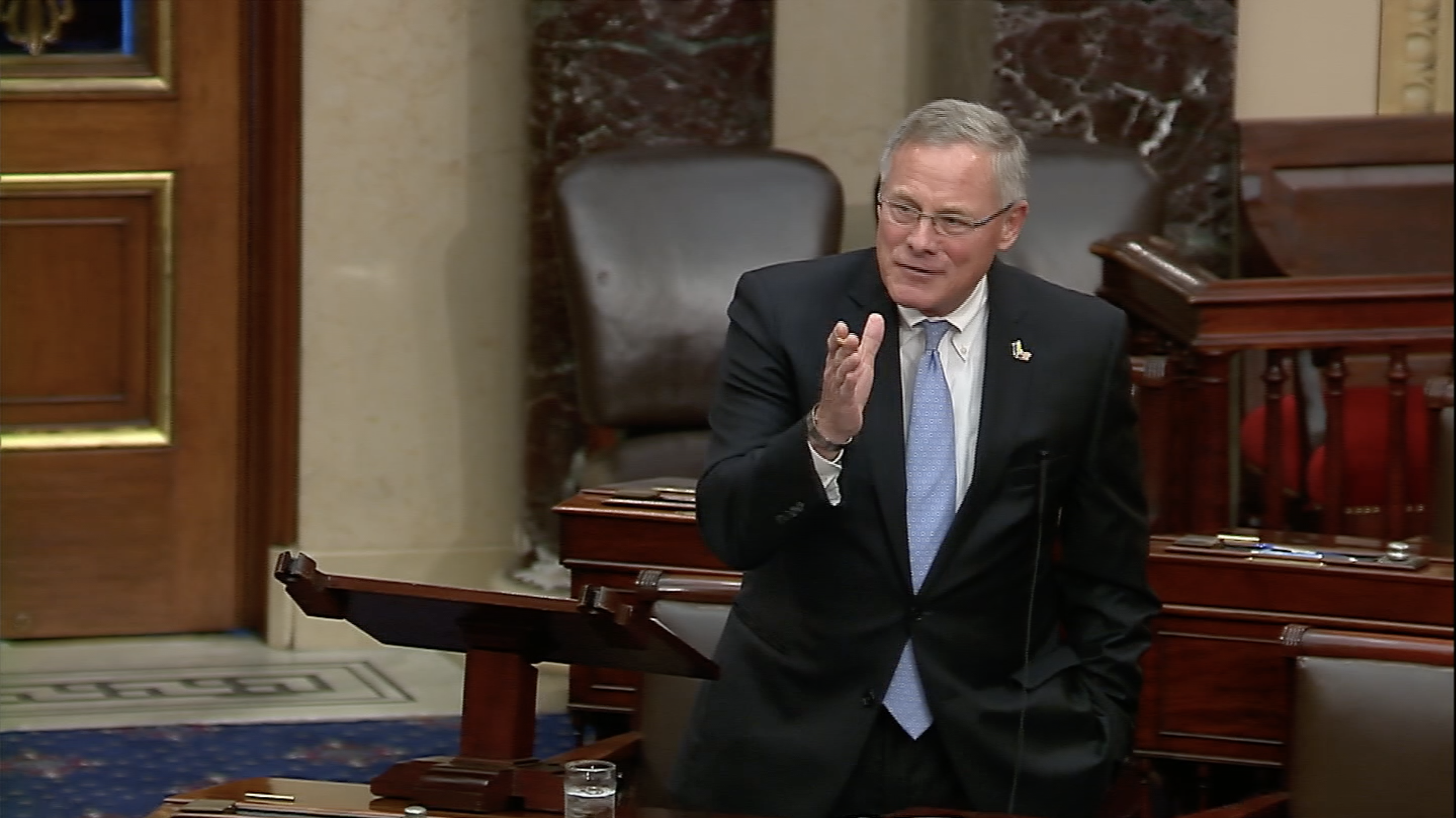Burr, Wicker Call on Senate to Immediately Pass Resolution Preventing Disastrous Rail Worker Strike
Today, Senator Richard Burr (R-NC), Ranking Member of the Senate Health, Education, Labor and Pensions (HELP) Committee, and Senator Roger Wicker (R-MS), Ranking Member of the Senate Commerce, Science, and Transportation Committee, took to the Senate floor to call on Congress to immediately pass their resolution to prevent a disastrous rail worker strike in a matter of days.
The resolution would adopt the comprehensive recommendations made by President Biden’s appointees to the Presidential Emergency Board (PEB), if no voluntary agreement can be reached prior to 12:01 AM ET Friday, September 16, when a mandated cooling off period ends. The PEB recommendations include significant wage rate increases for workers retroactive to 2020.
Without an agreement, America faces a potential rail worker strike as early as September 16th, which would cost an estimated $2 billion a day. Rail carriers have already begun to curtail shipments of certain materials and passenger routes in preparation for a potential strike.
“If we do not force this issue, at 12:01 tomorrow night, railroads will shut down, and the economic impact on people is $2 billion a day,” said Senator Burr. “Not only is $2 billion a day in economic impact, this is 160,000 trainloads of agricultural product at a time of harvest across this country. There’s some that say, well, this is going to affect me. They haul coal. They haul gas. They haul petroleum. They haul gases like helium that are required for manufacturing businesses. They haul autoparts, which means you’re going to see auto assembly plants shut down – not because of China, but because we let the railroad workers go on strike and not support the president’s position.”
Senator Burr continued, “This is not political. This is Republicans supporting the president’s position and only asking 12 Democrats to support this action. I ask my colleagues, drop this concern that you’re representing one side or the other. Ask yourself what’s best for America.”
“Inflation is at 8.3 percent or higher. Our GDP is shrinking and supply chains have not recovered from the pandemic. The last thing we need is a shutdown of this nation’s rail service, both passenger and freight, and yet that is what we are facing in less than a day-and-a-half from this moment: a massive rail strike that will virtually shut down our economy,” said Senator Wicker. “Congress can pass the recommendation of the PEB in full… and we can avoid this strike. And that’s what we ought to be doing.”
Sens. Burr and Wicker called for the Senate to pass the resolution by unanimous consent; the move was blocked by Senator Bernie Sanders (I-VT), who offered no solution to prevent massive disruptions and higher costs for middle-class Americans if an agreement is not reached in the next day-and-a-half.
You can read more about the resolution here.
You can read complete text of the resolution here.
Background:
Since 2019, the railroad industry and rail unions have been engaged in negotiations for a new contract, failing to produce an agreement. In July 2022, following the process established by the Railway Labor Act, President Biden appointed a Presidential Emergency Board (PEB) to investigate the dispute and make recommendations.
In August 2022, the PEB released its recommendations, which were endorsed by the White House. The recommendations proposed a 24 percent wage increase, plus $1,000 annual bonuses, to be applied retroactively dating to 2020, as well as increased health care and other benefits.
If the parties have not reached a tentative agreement by September 16th, the rail unions could engage in strike activity, which would cost an estimated $2 billion a day.
Senator Burr’s and Senator Wicker’s resolution further provides clarity and continuity to ensure the continued delivery of necessary goods to the American people.
